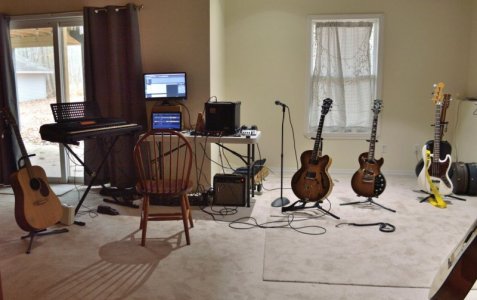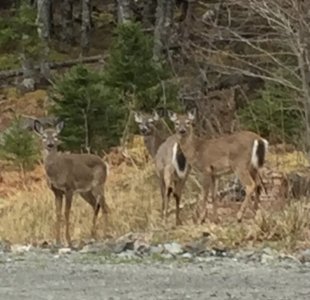tbeltrans
Senior Member
That is one of the aspects of music that appeals to me. It is so logical. Here is a paper I wrote between finishing my BS and starting an MBA program:(Disclaimer: Sorry, I wasn't told there would be no math...)
Not exactly sure why, but there does seem to be a strong correlation between music and engineering. Before my EE, I had been in college as a music major. I actually dropped out for nearly a decade to actually make money in the field I was studying in college. The music curriculum entailed a lot more rigor than I expected, or was prepared for. I found it to be highly mathematical by nature (think circle of fifths, chord structures and theory, etc.). Now I find interesting correlations in physical modelling tools in use by engineers and physicists. It gets more highly focused and constrained in audio engineering, with the use of filters like compression or others for tonal modification, even Fast Fourier Transforms (FFTs) in recording. The funny thing to me is that it is all coming back around in a circle. My music career led to an engineering career, and now the concepts of these math constructs in music is no longer mystifying like it was when I was 19. Maybe just mental maturation, but I don't think so; there really does seem to be similar thought process when designing a circuit or product, or walking into a lead guitar solo in a jazz song. Both events are highly creative, and satisfying mentally.
https://www.akordi-online.com/sites/default/files/20970330-Chord-Melody-Guitar.pdf
pdfdirff.com/download/chord-melody-guitar.pdf
https://www.cyberfret.com/classic/chord_mel.htm
There are other places it can be found, but these should be enough.
To me, diatonic music theory is very logical and one idea builds on the next:
1. The set of notes used in Western music (i.e. chromatic scale)
2. The template used to start on any one of the 12 notes of the chromatic scale to extract a major scale
(i.e. whole step, whole step, half step, whole step, whole step, whole step, half step)
3. All other scale types can be derived from the major scale (natural, melodic, and harmonic minor scales, pentatonic scale, etc.)
4. Spelling chords - templates for extracting chords (stacking thirds) from the major scale
Everything else comes from these 4 points. Essentially that is the gist of my paper, and then all of that maps into the CAGED system on the guitar fretboard.
By the way, in my observation, music moves by fourths, which is backwards through the cycle of fifths. It seems to me that the cycle of fifths is useful for keeping tracks of the sharps or flats in a key, though the typical useful chords in a key are adjacent, and the tritone sub is across the circle from any point in the circle.
Tony



